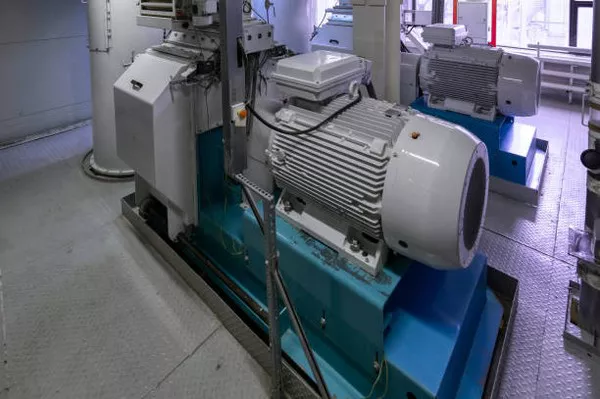Selecting the appropriate generator size for your 30 amp RV is essential for ensuring you have enough power to operate your appliances and enjoy your travels comfortably. Understanding the power requirements and the generator’s capabilities will help you make an informed decision. This article delves into the factors to consider, calculations for power needs, and recommendations for generator sizes suitable for 30 amp RVs.
Recreational vehicles (RVs) offer a unique way to explore the great outdoors while enjoying the comforts of home. However, power management becomes crucial when camping in remote locations without access to electrical hookups. A generator provides the necessary electricity to run appliances, charge devices, and maintain a comfortable living environment. This guide will help you understand what size generator you need for a 30 amp RV.
Understanding RV Electrical Systems
What Does a 30 Amp RV Mean?
A 30 amp RV typically refers to the electrical service available for powering the vehicle. This service allows for a maximum of 3,600 watts (120 volts x 30 amps) of continuous power. This means that the generator you choose must be capable of delivering enough wattage to meet the demands of your RV.
Common Appliances and Their Power Requirements
Understanding the power requirements of your RV appliances is crucial for selecting the right generator size. Here’s a list of common appliances and their approximate wattage:
Air Conditioner: 1,200 – 2,000 watts (starting wattage can be higher)
Refrigerator: 100 – 400 watts
Microwave: 600 – 1,200 watts
Water Heater: 1,000 – 1,500 watts
Television: 100 – 400 watts
Lights: 10 – 100 watts per light fixture
Starting vs. Running Watts
It’s essential to differentiate between starting and running watts:
Starting Watts: The initial surge of power needed to start an appliance (e.g., an air conditioner).
Running Watts: The continuous power required to keep the appliance running.
For example, an air conditioner may require 2,000 watts to start but only 1,200 watts to operate.
Calculating Your Power Needs
Step-by-Step Calculation
List All Appliances: Write down all the appliances you plan to use simultaneously.
Determine Their Wattage: Use the wattage values provided above or refer to the appliance labels.
Calculate Total Running Watts: Add up the running wattage of all the appliances.
Add Starting Watts: For any appliance that requires additional starting watts, include this in your total.
Example Calculation
Let’s say you want to run the following appliances in your RV at the same time:
Air Conditioner: 2,000 watts (starting)
Refrigerator: 300 watts
Microwave: 1,000 watts
Lights: 200 watts
Total Running Watts:
Air Conditioner: 2,000 watts (considering starting watts)
Refrigerator: 300 watts
Microwave: 1,000 watts
Lights: 200 watts
Total: 2,000 + 300 + 1,000 + 200 = 3,500 watts
Recommended Generator Size
Considering that generators should typically provide a buffer above your calculated needs, you would want a generator that can handle at least 4,000 watts of running power. A generator rated for 4,500 to 5,000 watts would be ideal to accommodate starting surges and provide flexibility for additional appliances.
Types of Generators
Portable Generators
Portable generators are a popular choice for RV owners. They are versatile, easy to transport, and can be used for various applications beyond RV use.
Advantages:
Affordable
Lightweight
Easy to set up and use
Disadvantages:
Limited fuel tank size (requires frequent refueling)
Noise levels can be high
Inverter Generators
Inverter generators are quieter, more fuel-efficient, and provide cleaner power suitable for sensitive electronics.
Advantages:
Quieter operation
Clean, stable power output
More fuel-efficient
Disadvantages:
Typically more expensive than conventional generators
Lower power output in some models
Generator Size Recommendations
For a 30 amp RV, consider the following generator sizes:
4,000 to 5,000 watts: Ideal for most 30 amp RVs, accommodating air conditioning and essential appliances.
6,000 watts or higher: If you plan to run multiple high-wattage appliances simultaneously or need extra capacity for future upgrades.
Generator Fuel Types
Gasoline
Most portable generators run on gasoline, which is widely available but can be less efficient and has a shorter shelf life.
Propane
Propane generators are cleaner-burning and can be stored indefinitely. They are suitable for RVs due to their efficiency and reduced emissions.
Diesel
Diesel generators offer high efficiency and longevity but can be more expensive and less common for recreational use.
Dual-Fuel Generators
These generators can run on both gasoline and propane, offering flexibility and convenience for RV owners.
Noise Levels and Regulations
Understanding Decibel Levels
Noise levels are an important consideration when choosing a generator. Most portable generators produce noise levels between 60 to 75 decibels, which can be disruptive in quiet camping environments.
State and Local Regulations
Many campgrounds have noise regulations in place. Always check local laws and campground rules regarding generator usage to avoid fines or complaints.
Maintenance and Care
Regular Maintenance Tasks
Oil Changes: Change oil regularly according to the manufacturer’s guidelines.
Air Filter Cleaning: Clean or replace the air filter periodically.
Fuel System Maintenance: Keep the fuel system clean and check for leaks.
Battery Checks: Ensure the battery (if applicable) is charged and in good condition.
Storing Your Generator
Proper storage is essential for maintaining your generator’s longevity. Store it in a dry, cool place and protect it from moisture and dirt.
Conclusion
Choosing the right generator size for your 30 amp RV is crucial for ensuring a comfortable and enjoyable camping experience. By understanding your power needs, calculating wattage requirements, and considering generator types and fuel options, you can make an informed decision. Aim for a generator in the 4,000 to 5,000-watt range to meet your RV’s demands effectively. With the right generator, you’ll be well-prepared for your adventures, whether in remote locations or at campgrounds with limited power access.
Related topics:

